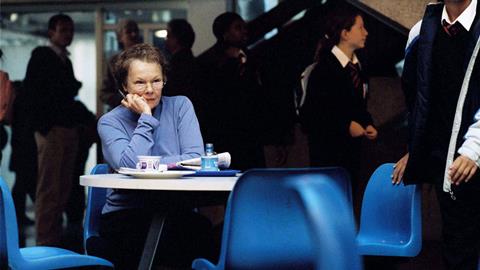Diary of a busy practitioner, juggling work and family somewhere in England
I recently read Notes on a Scandal by Zoe Heller. If you haven’t read it (or seen the film), it is the story of a woman having an affair with a teenage boy, told by Barbara Covett, the woman’s friend. Barbara is a strange character. She is obsessive in her friendships – which themselves seem to be few and far between. I devour books whole and as a result tend to forget them pretty quickly, but my mind keeps coming back to Barbara’s description of loneliness.

I know most firms I’ve worked for seek to take an active role in their community, and with both Grief Awareness Week and Christmas approaching, I thought it was worth talking about how truly awful it must be to be chronically lonely. Lots of us will deal with the bereaved, the displaced, the recently separated, the estranged and, let’s face it, the so-stressed-they’ve-pushed-everyone-away.
In the book, Barbara moans about people like her friend – busy with family and longing for a bit of time to themselves. You can probably see already why this hit me hard. I never have any personal space, there is constantly a child or pet squawking to have me do something for them. No object is ever where I left it and a small part of my brain is constantly busy keeping track of where every single item is. We always have Radio 2 on for the dog in the kitchen, Ali-A on the TV, Taylor Swift playing upstairs, Noah Kahan from my husband’s study, Neighbours is being watched on a phone and somewhere Dress to Impress is being played on a Switch with commentary from both children and their friends whose disembodied voices are booming out of different devices.
I am that annoying person who doesn’t realise what it is like to be lonely. I don’t think I’d ever thought about it before, except (annoyingly) as something I can only hope for in the future.
Barbara says people like this ‘think they know what it’s like to be lonely. They cast their minds back to the time they broke up with a boyfriend in 1975 and endured a whole month before meeting someone new. Or the week they spent in a Bavarian steel town when they were 15 years old, visiting their greasy-haired German pen pal and discovering that her handwriting was the best thing about her’. Even this description made me feel like an idiot, as I’ve been banging on to my husband about how lonely I felt on a work trip recently. My evenings, which have mostly been spent for the last decade trying to get children to sleep, went on forever. I had Fleabag for company (again, late to the party) but not for long as the episodes only last 25 minutes. Eating alone is a very quick affair, and I felt like my physical and emotional energy simply wasn’t spent when I went to bed, despite having an overall sleep deficit of 12 years and counting.
Barbara talks about the ‘great store of unused, objectless love’. Recently, Deceptively Angelic Looking Child 2 (DALC2) keeps calling us ‘her humans’. Imagine having no humans (and feel free to insert dogs and – if you really have to – cats into this sentence). Imagine how I felt on my work trip every evening for decades. Every morning too. Instead of thinking out the best use of time in six-minute increments at the weekend (you do that too, right?), trying to extend tasks such as food shopping or conversations with a neighbour so you don’t have to go back indoors so quickly. You don’t have to tidy up because no one is making a mess. Years ago I wrote about the mental health continuum and how factors like purpose, emotional connection, community and attention will move you up or down it. It is so clear how loneliness will inevitably affect one’s mental health.
So what can we do? Be aware, of course. Check-in with clients. DALC1’s school tells them to ‘ask twice’ how people are, which I think has the potential to be really effective. Be aware that lonely people may not be good at some social stuff and make allowances.
If you know someone who might benefit, signpost them to the Campaign to End Loneliness, the Campaign Against Living Miserably and, particularly at Christmas, the Marmalade Trust, which provides companionship during the festive season.
Some facts and identities have been altered in the above article
































7 Readers' comments